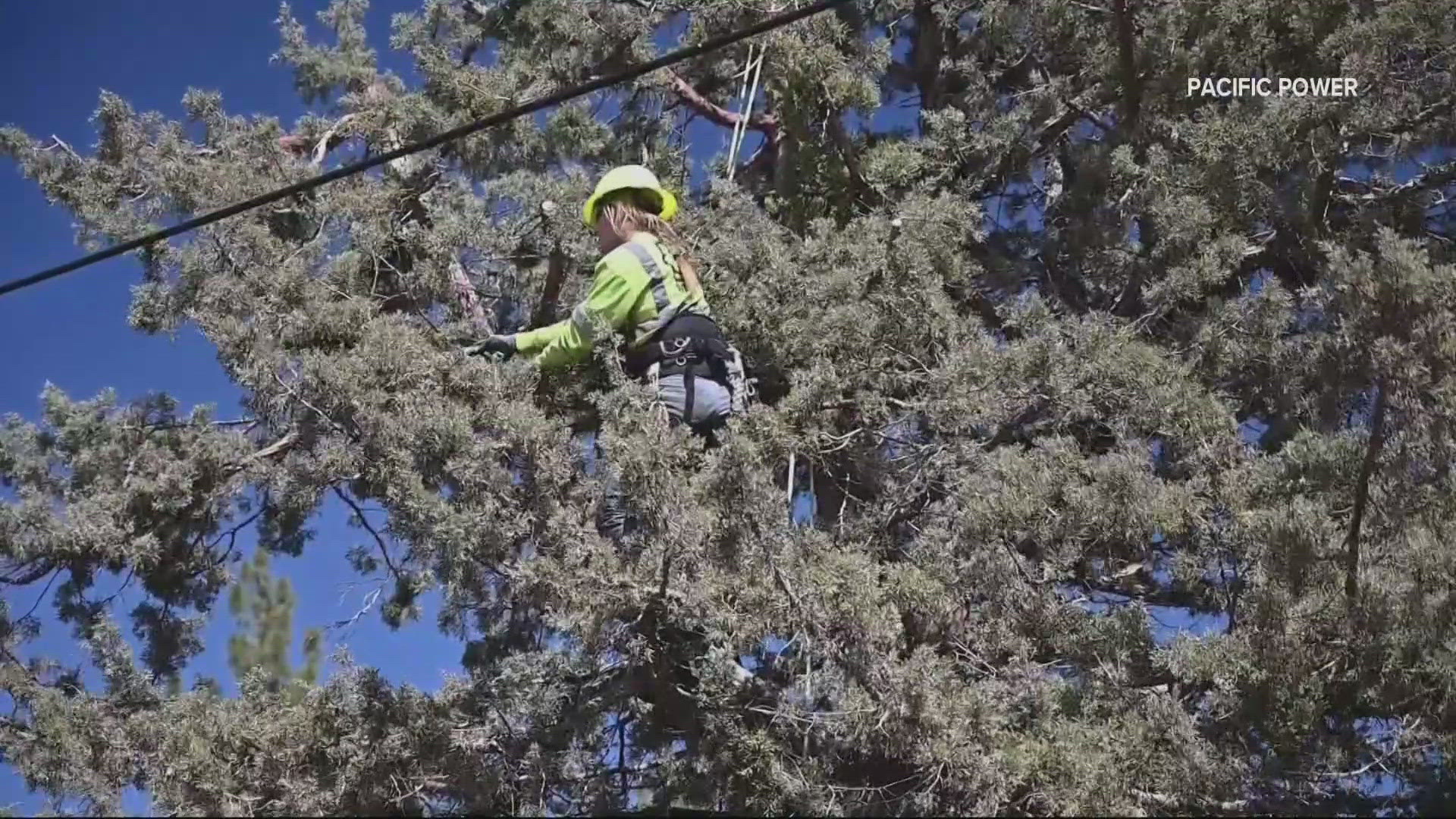OREGON, USA —
Under cool and cloudy skies in Northeast Portland, Chester Lampkin couldn’t help but remark on the lovely weather.
“As a meteorologist, we love this kind of weather here,” Lampkin said at a press conference Wednesday morning. “We really do.”
Lampkin works for Pacific Power and helps the utility monitor and forecast the weather, specifically how it relates to wildfires.
The press conference was called to give a preview of what Oregon could be facing this summer and what utilities like Pacific Power are doing to prepare.
On the forecasting front, there was good news and not-so-good news.
“The rainy season precipitation has been near normal across the state,” Lampkin said, noting that snowpack in the northwest parts of Oregon is at or above yearly averages.
The same couldn’t be said for parts of eastern, central and southeastern Oregon.
“Longer-term drought effects persist in places like Deschutes, Crook, Klamath and Lake County,” Lampkin said. “Forecasters are also calling for a summer that is hotter and drier than normal.”
The severe January ice storm also brought down a ton of limbs and trees in forests on the west side, and once those all dry out, they’ll be primed to burn.
“Areas west of the Cascades have above-normal dead fuel loading due to winter storm damage,” Lampkin said. “That means that they may experience wildfires that are a little bit more difficult to gain control over.”
And the wildfire season outlook comes against the backdrop of the 2020 Labor Day fires, which scorched nearly a million acres in Oregon, destroyed more than 4,000 homes and killed 11 people.
In the aftermath, a jury found Pacific Power liable for negligence in starting or helping to spread several of the largest and most destructive of the Labor Day fires.
Since then, the company has paid out more than $130 million in damages, and earlier this week, another 1,000 people joined a class action lawsuit seeking roughly $30 billion from Pacific Power.
A spokesman at Wednesday’s press conference declined to comment on the lawsuits citing pending litigation.
But Allen Berreth, vice president of transmission and distribution for the company, said they are committed to doing everything they can to limit the risk to their customers.
“We're out inspecting our poles, wires and the equipment out in the field to make sure they're in good working order,” he said. “We inspect our lines for clearance between the trees and the overhead wires and make sure there's an appropriate distance.”
Berreth also noted that the company can implement enhanced safety settings on its network of power lines. Devices on the lines themselves can detect disruptions and cut power “within fractions of a second,” Berreth said.
When wider power restrictions are necessary, the company can institute “Public Safety Power Shutoffs,” where power in wide areas is cut off to prevent downed lines from sparking fires.
In those cases, Berreth said the company is committed to working with local first responders and providing notice to residents, which is especially important for people who rely on electricity for medical care.
“We realize there's an impact to deep energizing a community in elevated conditions,” he said.
Officials from the utility also stressed that spring is a good time to review the contents of your household emergency kit or to create one if you haven’t yet.
So, when is fire season expected to start?
“The active portion of the fire season is expected to arrive on time,” Lampkin said. “That's June for most areas of Oregon, with the peak of the season August and September.”
But with climate change shifting how fire season looks each year, Berreth said it was important to pay attention to conditions around you.
“We emphasize that fire season is not a date; it's a condition, and we are monitoring those conditions every day of the year,” he said.

